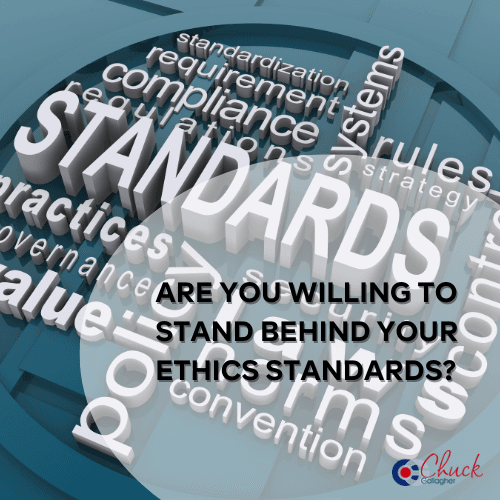 Recent developments at Tractor Supply Company have brought the crucial issue of corporate ethics to the forefront, particularly the role of diversity and inclusion (DEI) policies in business practices. This scrutiny emerged after Tractor Supply scaled back its diversity, equity, and inclusion initiatives, raising significant questions about the authenticity of its commitment to diversity and whether it is influenced by consumer and political pressures.
Recent developments at Tractor Supply Company have brought the crucial issue of corporate ethics to the forefront, particularly the role of diversity and inclusion (DEI) policies in business practices. This scrutiny emerged after Tractor Supply scaled back its diversity, equity, and inclusion initiatives, raising significant questions about the authenticity of its commitment to diversity and whether it is influenced by consumer and political pressures.
Background:
Tractor Supply, a major retail chain known for catering to rural lifestyles, has recently faced criticism for its fluctuating stance on DEI policies. The company initially promoted strong DEI principles, including support for LGBTQ+ communities and climate-friendly initiatives. These initiatives were part of a broader corporate social responsibility strategy that aimed to align the company’s operations with ethical and societal values. However, these initiatives have seen significant reductions, leading to questions about the company’s steadfast commitment to these values.
The Shift in Ethical Stance
Tractor Supply’s decision to alter its approach to climate change and DEI policies appears to be driven by several factors:
- Consumer Backlash:
In various regions, especially in more conservative areas where Tractor Supply has a significant presence, there has been a notable consumer backlash against DEI and climate initiatives. Some customers have disagreed with the company’s progressive stances, potentially impacting sales.
- Political Climate:
The political environment, particularly in states where Tractor Supply operates many stores, has seen increasing resistance to DEI and climate change policies. Legislation and public opinion in these areas often oppose the perceived “woke” agenda, compelling companies to reassess their positions to align with local sentiments.
- Economic Pressures:
Economic factors also play a crucial role. Implementing comprehensive DEI and climate initiatives can be costly. Companies might prioritize immediate financial stability over long-term ethical commitments in economic uncertainty or downturns. The need to cut costs and ensure profitability can lead to the scaling back of such initiatives.
- Investor Influence:
Investors’ pressure on short-term financial returns can influence a company’s ethical decisions. If investors perceive that DEI and climate initiatives are not directly contributing to profitability, they may push for a reduction in these programs.
Ethical Dilemma
This shift raises a critical ethical question: Is Tractor Supply’s commitment to diversity and inclusion genuine, or is it merely a strategy that changes with market pressures? This dilemma is not unique to Tractor Supply but reflects a broader issue in corporate America, where ethical standards may waver based on economic and social influences.
Corporate Responsibility vs. Market Pressures:
Companies often face the challenge of balancing ethical principles with market demands. Tractor Supply’s recent actions suggest a retreat from its earlier DEI commitments, potentially in response to backlash from specific consumer segments. This situation highlights the conflict between maintaining ethical integrity and catering to the biases of a portion of the customer base.
Case Studies and Comparisons:
- Disney’s Reaffirmation of LGBTQ+ Support:
Disney faced similar pressures but chose to reaffirm its support for LGBTQ+ rights despite potential backlash. Regardless of market pressures, this commitment to their principles contrasts Tractor Supply’s apparent retreat.
- Starbucks’ Consistent DEI Efforts:
Despite criticism, Starbucks has maintained its DEI initiatives, emphasizing that its ethical standards are integral to its brand identity. This consistency has helped build a loyal customer base that aligns with the company’s values.
- Chick-fil-A’s Controversial Stance:
On the other hand, Chick-fil-A has faced ongoing controversy for its stance on LGBTQ+ issues, demonstrating how a firm position, even if unpopular with some, can define a company’s ethical standing in the public eye.
Public Perception and Trust
The public’s perception of a company’s ethics has a profound impact on its reputation and customer loyalty. Tractor Supply’s fluctuating stance may lead to distrust among consumers who value consistent ethical practices. A study by Edelman found that 64% of consumers choose, switch, avoid, or boycott a brand based on its stand on societal issues. Inconsistent ethical standards can erode trust and damage long-term customer relationships.
Final Thoughts
As a business ethics speaker and author, I believe the case of Tractor Supply underscores the importance of steadfast ethical principles in corporate governance. Companies must decide whether to hold firms to their stated values or adjust them based on market pressures. As the landscape of consumer expectations continues to evolve, maintaining consistent ethical standards will be crucial in building and retaining trust and loyalty. Failure to do so could lead to long-term financial implications, including loss of market share and decreased customer loyalty.
References:
– CNN: [Tractor Supply scales back DEI initiatives](https://www.cnn.com/2024/07/11/business/tractor-supply-dei-climate-lgbtq?cid=ios_app)
– Edelman Trust Barometer: [Consumer trust and brand advocacy](https://www.edelman.com/trust/2024-trust-barometer)
– Financial Times: [Impact of Investor Pressure on Corporate Ethics](https://www.ft.com/content/impact-of-investor-pressure-on-corporate-ethics)
– Harvard Business Review: [Balancing Corporate Responsibility and Market Demands](https://hbr.org/2024/06/balancing-corporate-responsibility-and-market-demands)
By examining these aspects, companies like Tractor Supply can better navigate the complexities of ethical business practices. It’s crucial for companies to align their actions with their values and consumer expectations, as this can significantly impact their reputation and customer loyalty.


